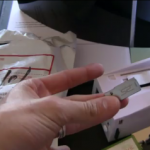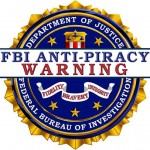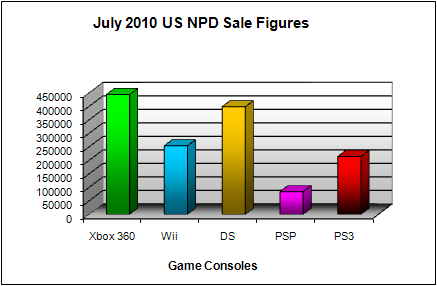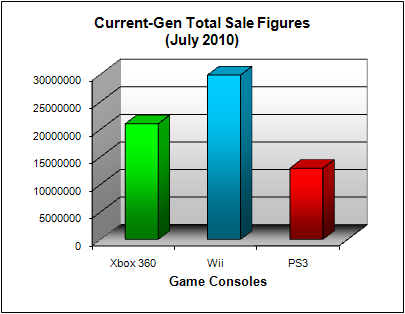After my Australian NBN rant last week, there won’t be a pre-WNR rant this week. I really probably should have put that segment as its own blog entry, but then even less people would read it, and a good rant is only as good as the number of people that it reaches. There’s still no firm outcome in the Australian election, so the fate of the NBN still hangs in the air, but I hope it goes ahead, not just because it means I can finally have an alternative to my 0.8 Mbps 3G connection that dies every 30 minutes due to congestion at peak times. There’s a bit more to go through in this WNR, so let’s get started.

In copyright news, the RIAA is at it again, and it now wants the government to create even tougher copyright laws, claiming the DMCA that the RIAA and other groups hailed at the best thing ever, has failed.
It has failed, according to the RIAA, because ISPs and websites can now “hide” behind it when their subscribers and users violate copyright. You see, the DMCA’s safe harbor provision protects ISPs, search engines and websites with user generated content as long as they have a copyright infringement policy which they enforce. Of course, the level of enforcement is left up to ISPs and websites, since enforcement can be costly, time consuming, and in the end, something will always get through. But the RIAA is not happy because, well, they’re never happy really. If they can’t stop 100% of all piracy, then they might have to innovate and stuff, and nobody wants to do that! But there is a reason why safe harbor exists, as otherwise Google, YouTube, and your ISP, would not survive the round after round of lawsuits that the RIAA, MPAA and others would love to throw at them, and not fail every time (haha Viacom, sucks to be you). I don’t know about you, but faced with the choice, I’d rather Google, YouTube and the Internet exist, rather than to make the RIAA and MPAA feel safer at night knowing piracy is stopped, even though it probably won’t bring them more money (since people who can’t afford to pay for stuff, still can’t afford to pay for stuff, even if you get rid of piracy completely). This Crusade Against Piracy needs to end.
But another day, and another new, innovative, fool proof, way to end piracy once and for all. The latest involved suing the people advertising on websites that host pirated content. That’s what Disney and Warner Bros. are doing by suing Triton Media which they claim supplied ads to websites hosting or linking to pirated content. But Triton Media may have been running one of the piracy websites in question, so it’s not an all out attack on advertising agencies. Yet. Cutting the funding source for piracy websites, and thus ensuring there’s less incentive to start one, sounds like a reasonable plan, but reputable ad agencies already have policies which prevent these type of sites from signing up, but the less reputable agencies won’t care about a lawsuit or two if they’re located in places that are hard to sue. Thinking about advertising actually makes me think of adult websites (you see, I normally never think about, let alone visit, adult websites … it’s not worth the money I’m paying for my crappy 3G connection with limited bandwidth!). A lot of adult websites that host free content rely on advertising, and if there was a Crusade Against Porn (heh, it’s CRAP again), then the “Won’t Someone Think of the Children Council” or whoever is running the crusade will be going after the advertising agencies providing ads to these types of websites for sure. And I’m sure they’ll be calling on government to monitor people’s Internets so they’re not downloading pron, and asking for tougher laws against ISPs, search engines and websites that allow the spread of pron to go unchallenged. And most of us would then recognise how stupid and futile that moral crusade would be. Just like this one.
But this is about money, so the crusade has even more fervent support. But if it really is just about money, then surely record profits should at least comfort those in power that, maybe just maybe, there’s light at the end of the piracy tunnel. But it seems the only thing they’re seeing may be the imaginary piles of cash that piracy is taking away, although those piles of cash will now and forever remain imaginary, despite what happens to piracy. And then greed will ensure that they will probably ruin whatever they did right (like innovate) to earn the record profits they have. It may be starting with cinemas, which have recorded amazing profits in the last few years, but ever increasing ticket prices are now damping people’s enthusiasm for 3D and big screens, it seems. So innovate, more customers and profit, greed comes in, ruins everything. That’s about right. They want to have their cake, eat it, then have another cake, prevent other people from eating free cake, and then make people pay them for eating cake.
And then there are cases when it’s not even about piracy. Take Apple’s recent patent application which could see them disable iPhones remotely if they’ve been detected as having been jailbroken. This is despite, or may be in retaliation to, the recent DMCA changes that allows for legal iPhone jailbreaking. Apple can put up only a very feeble attempt to portray this as a piracy problem, as iPhone app piracy is possible on jailbroken iPhones, but that’s definitely not their main concern. Their main concern, as always, is to ensure everything you do on the iPhone has something to do with Apple Corp, and if you even try to use it without Apple’s involvement, then be prepared to at least lose your product warranty (which may or may not be legal, depending on your statutory rights as a consumer), and at worse, have all your data deleted and your phone disabled. And by making sure everything has to do with Apple, it ensure their current and future profits. And that’s all it’s really about, money. There is a (good) argument that Apple puts out which says that a controlled eco-system means a better product, and that’s true. And if many of the apps that only run on jailbroken devices were made available by Apple, then hardly anybody would bother to jailbreak their phones. But for various reasons, some directly related to Apple’s bottom line, others relating to deals they’ve made with phone carriers and such (which also affects their bottom line), Apple can’t let you use your legally purchased product in the way you want to. I have a simple solution to this – don’t sell us stuff that we can’t do whatever we please with. Instead of selling us iPhones, rent us the hardware, for peanuts or even for free, and then you can get to control how we can use the device. Otherwise, if you do intend to make hundreds of dollars on the iPhones, iPads, or even PS3s, then the hundreds of dollars we’ve paid should be enough financial compensation for daring to play with (or “hack”) our devices and to want to do more with them. The versatility of most devices these days means there’s even more incentive to do more “hacking” than ever.

And as a perfect way to segue from discussions about DRM to HD/Blu-ray/3D, the news about Samsung’s latest firmware update will do.
Samsung’s new firmware, believed to be DRM related, screwed up their BD-P*600 series of Blu-ray players that none of them, once updated, can now play Warner and Universal studios produced Blu-ray movies. Some users managed to downgrade the firmware, but those that couldn’t are now stuck waiting for Samsung to produce a fix, which won’t be coming until sometime in September. So it’s not okay to hack our own devices to make it do more, but it’s apparently okay now for manufacturers to hack *our* devices to make it do less (Sony … cough … Other OS … cough).
Okay, so this is not like the PS3 Other OS thing, because this was an accident, not a deliberate attempt to disable functions. But once again, it goes to the heart of the argument that frequent firmware updates are bad thing, and since the Blu-ray DRM sort of depends on this, this makes DRM a bad thing. Samsung stuffed up here, and they should pay the price. Something like a bunch of free Blu-ray movies for those affected might be nice, as long as these movies aren’t from Universal or Warner, of course.
But firmware updates are good when it helps to keep your hardware recent. The PS3 is a good example of these types of good firmware updates for the Blu-ray playback function at least, as successive ones have allowed the PS3 to keep pace with Blu-ray player development. Profile 1.1, 2.0, 3D … the PS3 has survived all of these, unlike other standalone players. But if the update is related to the optical laser, then the PS3 won’t be able to keep up, and this is happening now with BDXL, the new higher capacity Blu-ray format. Sony’s new standalone Blu-ray recorders, as well as those from Sharp, will now support BDXL, and it’s expected that standalone players will probably support them soon. But the PS3 won’t, and so could the PS3 be made obsolete as a Blu-ray player? I don’t think so, mainly because I don’t think movie studios will publish movies on BDXL. It is very much a recording format, and not even one that’s likely to be mainstream. There’s just no need for 100/128 GB discs, not when it’s much cheaper and easier to just provide multi-disc sets. But if BDXL do take off as a home recording format, then the PS3 will miss out.
The Blu-ray format overall though it still looking healthy, although as I talked about last week, the rapid growth seen last year is slowing down (but the major releases aren’t out yet for the year, and we’ll see how well Blu-ray does when Inception is out). Fox Australia thinks that 3D will help to ensure growth remains healthy. While it’s possible to deliver 3D via DVDs, there’s no standard like there is with Blu-ray (not to mention the lower quality), so this is one area in which Blu-ray is going to do very well compared to DVDs. Whether it will help it overtake DVDs as the most popular home video format, I really do doubt this. My experience with 3D is that it’s pretty much still a gimmick – good to have, some will love it, but I would prefer a good film (even in SD) over a bad one with great 3D effects, any time.
And some further development in the slow brewing, so quite boring war, between H.264 and WebM. The MPEG LA, the people responsible for H.264 licensing, has promised free H.264 streaming forever. So websites like YouTube can keep on using H.264 to stream their videos without worrying about a hefty licensing fee (although for Google/YouTube, they’ll be able to pay the fee with the change they find in Larry and Sergey’s sofa). But this latest development isn’t convincing Mozilla, because their problem with H.264 isn’t because it isn’t free (and licensing fee they would pay would be quite insignificant), but because it’s a closed, proprietary format. Unlike WebM. So unless H.264 can go open source, or at least some “web streaming” version of it to go open source, it looks like Firefox and Opera will be dealing with WebM instead, and webmasters will have to produce videos that work with both codecs, which is kind of annoying.
![]()
And in gaming, and speaking of Other OS (he said three paragraphs later), now that the PS3 has been hacked, there’s been calls for Sony to bring back Other OS. I mean if disabling Other OS was to prevent the PS3 being hacked for piracy, and now that it’s been well hacked, why not bring it back?
But Sony have acted quickly to stop the PS3 jailbreak device, suing three retailers in Australia who are selling the device in the federal court. And the next round of firmware update will surely attempt to do something to stop such devices from working, which will probably have produce some collateral damage, and cause something to stop working.
And that’s all the news I bothered to find this week. You know, it’s not me skipping news item after news item just because I was busy watching movies or playing games or something. I do actually have to look at the news item, see if it’s some press release or one form of advertising or another (“PS3 is most excellent, says Sony’s PR department”, etc…), or that it’s not an old news disguised as “new” news (a lot of that happening now, with websites spamming Google News and whatnot … there’s apparently this new format called HD DVD, according to a “new” news article I read this week), and then decide which makes it, and which gets skipped. It’s not as easy as it sounds!
Watching movies and playing games are much easier.
See you next week.



















